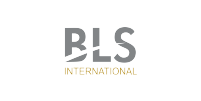7 min read |
The Insurance Regulatory and Development Authority of India (IRDAI) has introduced significant changes aimed at enhancing the protection of policyholders, particularly focusing on claim settlement timelines and the prevention of mis-selling practices. These new regulations, outlined in a recent master circular, are designed to streamline processes and improve transparency in the insurance sector. Here’s an overview of these changes and their implications for consumers.
Shorter Claim Settlement Timelines
One of the most notable updates from the IRDAI is the reduction in turnaround times (TAT) for claim settlements. Under the previous regulations, life insurers were required to settle death claims within 30 days after receiving all necessary documents. If investigations were needed, the timeline extended to 90 days for completion and an additional 30 days for settlement. The new guidelines mandate that claims requiring investigation must now be settled within 45 days, while those that do not require investigation must be resolved within 15 days.
This change is significant as it aims to expedite the claims process, ensuring that beneficiaries receive their payouts more swiftly during critical times. Additionally, any delays in settlement will require insurers to pay interest at the bank rate plus two percentage points, a provision that was previously in place but often overlooked by insurers. This shift emphasizes accountability and encourages timely processing of claims.
Enhanced Health Insurance Protocols
In the realm of health insurance, the IRDAI has established stringent timelines for cashless authorizations. Insurers must provide cashless authorization within one hour of receiving a request and grant final authorization within three hours after receiving discharge authorization requests. For reimbursement claims, insurers are now obligated to settle these within 15 days. These measures aim to minimize delays that can affect patient care and ensure that policyholders are not left waiting unnecessarily for approvals.
Stricter Regulations Against Mis-selling
To combat mis-selling—a prevalent issue in the insurance industry—the IRDAI has mandated a thorough analysis of policyholder needs before issuing life insurance policies. Insurers and distributors must now conduct a “need analysis” that assesses the suitability of life insurance products based on the policyholder’s income requirements, affordability, and expected benefits. This analysis must be documented and shared with prospective policyholders, ensuring they have a clear understanding of how the product meets their needs.
Moreover, insurers are prohibited from collecting premiums before making an underwriting decision on whether to issue a policy. This regulation aims to protect consumers from being charged for policies that may not be issued due to underwriting criteria.
Stay updated with us
Changes in Free-Look Periods
The free-look period—the duration during which policyholders can review their policies and opt for cancellation—has been extended from 15 days to 30 days. This extension allows consumers more time to evaluate their policies without financial penalties, fostering greater consumer confidence.
Appeals Process for Ombudsman Orders
Another significant change is regarding the appeals process against awards passed by insurance ombudsmen. Previously binding on insurers, these orders can now be appealed by insurance companies if they are dissatisfied with the outcome. While this provides insurers with a recourse option, it raises concerns about potential delays in resolution for policyholders seeking justice through the ombudsman system.
Addressing Policy Splitting Concerns
The IRDAI has also highlighted issues related to “policy splitting,” where multiple similar policies are sold to a single policyholder at once, potentially leading to loss of discounts or higher charges. Moving forward, such splitting can only occur upon specific request from the policyholder. This regulation aims to protect consumers from unintended financial consequences associated with excessive policy fragmentation.
The recent regulatory changes introduced by the IRDAI represent a significant step toward enhancing consumer protection in the insurance sector. By mandating shorter claim settlement timelines, enforcing stricter regulations against mis-selling, and improving transparency through detailed need analyses, these measures are designed to foster trust and accountability among insurers while prioritizing the interests of policyholders. As these changes take effect, it will be crucial for consumers to stay informed about their rights and ensure they fully understand their insurance products.
















